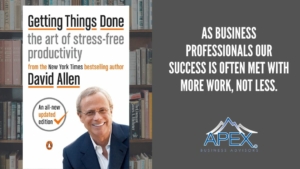Use December To Win In April: Thoughts For Year End Tax Strategy
 The end of the year can be very hectic for business owners. They spend their time ensuring their projects get completed, customers get billed, and that there is enough time left to spend with family and friends. One task often overlooked during December is an end-of-year adjustment for tax strategy. Optimizing the business’s financial position for the coming year while minimizing its tax liability is a critically overlooked opportunity. With that tax strategy, consideration must also be given to how it may affect the viewing of the financial reports for the business. Potential buyers will want to know that the business is fiscally strong and that the tax history and reporting are accurate.
The end of the year can be very hectic for business owners. They spend their time ensuring their projects get completed, customers get billed, and that there is enough time left to spend with family and friends. One task often overlooked during December is an end-of-year adjustment for tax strategy. Optimizing the business’s financial position for the coming year while minimizing its tax liability is a critically overlooked opportunity. With that tax strategy, consideration must also be given to how it may affect the viewing of the financial reports for the business. Potential buyers will want to know that the business is fiscally strong and that the tax history and reporting are accurate.
This is where a close partnership with an accountant can pay dividends in making sure that the business is prepared in advance and taking full advantage of the legal options available for reducing what taxes are owed in April. Having the benefit of a knowledgeable team can provide the business with the best direction and actions to pursue.
There is nothing worse than enjoying the Holiday season with the expectation that you understand and know your tax picture, and then coming across a nasty surprise come April 15th. Tax planning, in the right hands, should be a strategic tool providing valuable insight into how best to close the year and adjust in the future. Some basic strategies to discuss with your accountant include:
- Tax loss harvesting
- Reasonable compensation analysis that protects you and maximizes the Qualified Business Income Deduction
- Timing capital expenditures and when to accelerate or to defer to land your deduction in the proper tax year
Take Advantage of Shelters
Some exclusive offerings are available to business owners that can help provide some relief from taxation while still keeping you financially solid and prepared for your future as a retiree. One example is the Solo 401(k) which is specific to business owners. The Solo 401(k) allows you to put business income as eligible compensation into a 401 (k) account for the business owner, which lowers overall profit for the year of the business, thus lowering the business’s tax liability. Other examples of eligible shelters are SEP IRA, Simple IRA, and a traditional 401(k). Another option for business owners is utilizing Deferred Compensation plans to greatly reduce taxable income.
Business Entity Changes
Depending on what type of entity your business currently operates under, there may be some benefit to changing from a sole proprietorship to an S Corp or LLC. It’s also time to toss the C-Corp and move to an S Corp or LLC! Each entity will have a variety of tax benefits and liabilities that they may offer to your current business model, so making sure you get the expert advice of an accountant is key. Christopher Royalty of Solopreneur Sherpa has noted that sometimes a late S-corp election is just the right move. “This sort of thing requires a complete understanding of the tax code, payroll requirements, and other issues, but more than once it’s been perfect for a given client.”
The entity type will also make a difference when it comes to courting prospective buyers, so partnering with the experts here at Apex can help make sure that your business is desirable for purchase when you are ready to sell.
If you want to know more about how the selling potential of your business may benefit from an improved tax liability strategy, give us a call.

 “Leadership requires two things: a vision of the world that does not yet exist and the ability to communicate it.” – Simon Sinek,
“Leadership requires two things: a vision of the world that does not yet exist and the ability to communicate it.” – Simon Sinek, 
 You’ve most likely heard the expression, “You learn more from your failures than your successes.” Entrepreneur Josh Anhalt is living proof of that statement. He recently sold his business
You’ve most likely heard the expression, “You learn more from your failures than your successes.” Entrepreneur Josh Anhalt is living proof of that statement. He recently sold his business 